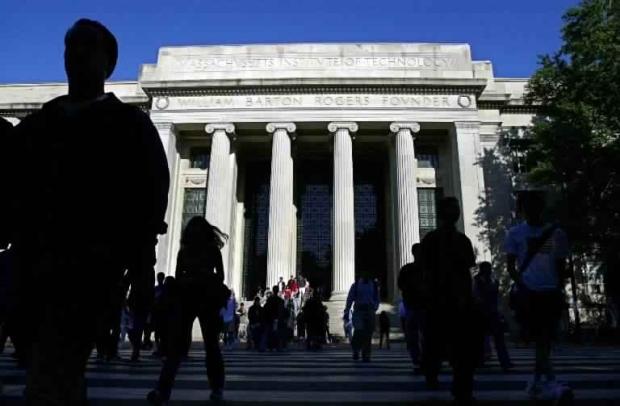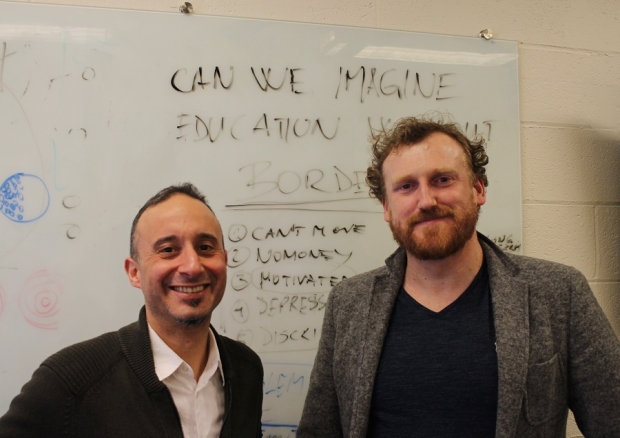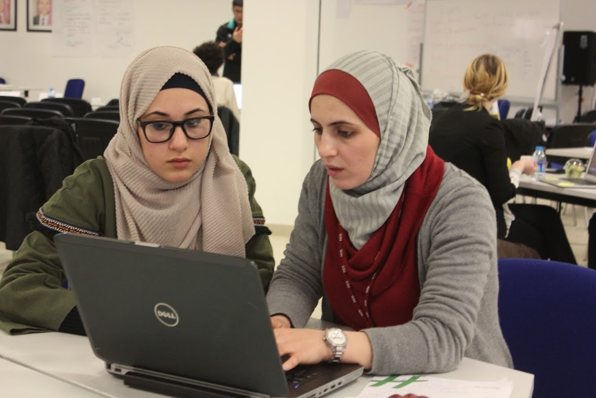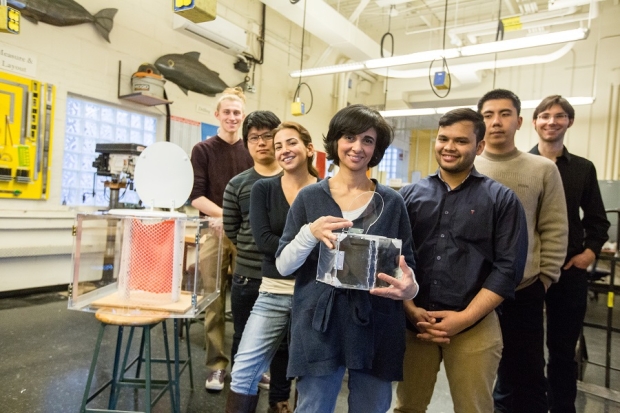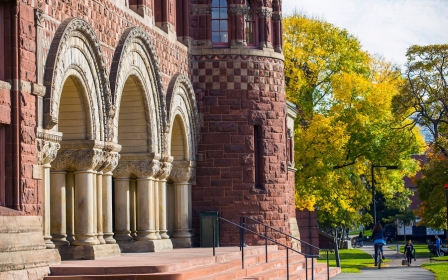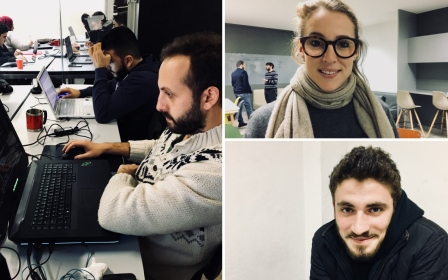'Education just can't wait': Refugees get a chance at MIT
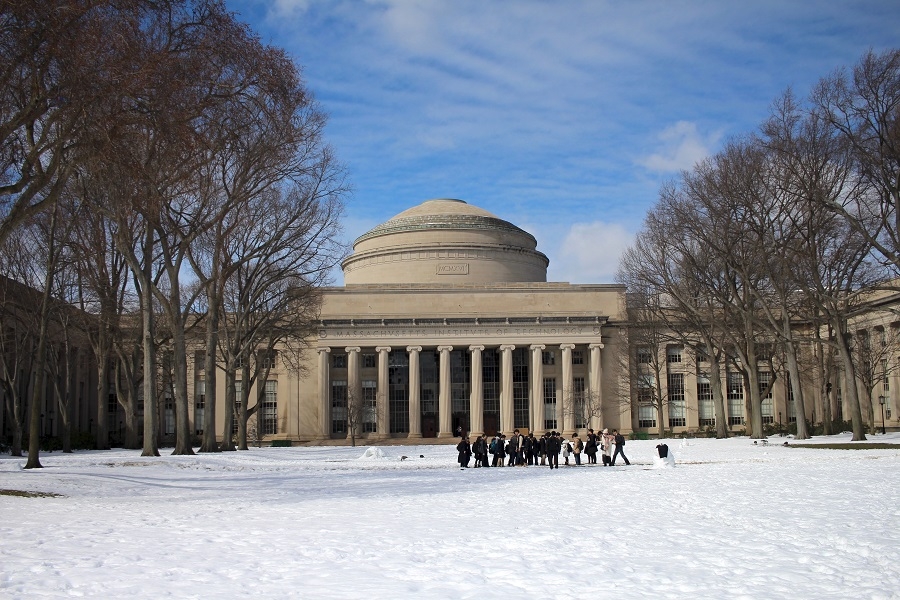
CAMBRIDGE, USA - Admir Masic knows just how important getting an education is. He was 13 when the war in Bosnia started and his family fled to a refugee camp in neighbouring Croatia.
Not wanting to disrupt his education, his mother tried to register him at a local high school, but was told that refugees were not allowed to study in Croatia. She broke down in tears and pushed her case, pleading with the school’s administrator. Persuaded by the emotional display and Masic’s already impressive academic record, the administrator relented by breaking the rules and allowing Masic to attend classes.
I realised that education could be the key to get me out of that poverty and discrimination, everything in that refugee camp, food scarcity, segregation
- Admir Masic, engineering professor MIT
Today, he is an engineering professor at the Massachusetts Institute of Technology (MIT).
“I had talent, but no opportunity,” he said. “My opportunity was that man who broke the law for me. And without that person, I would not be where I am right now.”
Being allowed to attend school “was the one moment that I realised that education could be the key to get me out of that poverty and discrimination, everything in that refugee camp, food scarcity, segregation,” he said.
His experience inspired Masic to launch an initiative aimed at bringing an MIT-level education to talented refugees in the Middle East, providing a rare opportunity for displaced persons to access higher education.
If the companies started by MIT alumni were a country, they would represent the world’s tenth largest economy.
But now, some of those top minds are shifting their attention to the refugee crisis, turning MIT into a hub for innovations and ideas to provide refugees with the opportunity to succeed. From a certificate programme, an annual competition, to a safe toilet, the institute is striving to alleviate the hardships faced by millions of refugees in the Middle East.
Education without borders
The main philosophy behind Masic’s Refugee Action Certificate Program (or ReACT) is left scrawled in faded black marker at the top of a whiteboard in his office: "Can we imagine education without borders?"
“It’s really something that we would like to believe in, that anywhere, in every single moment of their lives as refugees and displaced persons, there is an opportunity, there is a final objective that is there for them,” said Masic.
ReACT brings refugees MIT-level courses on entrepreneurship and computer science, giving them competitive skills that can help them prosper. The programme’s first class of 18 students convened in January at Al-Hussein Technical University, in Amman, Jordan, for two weeks of workshops and classes with MIT staff. For the rest of the year, their classes will be online.
Students in ReACT’s inaugural class come from Syria, Palestine and Jordan, with half of the students being refugees. While the programme is aimed at refugees, ReACT’s organisers decided to allow Jordanians to participate to promote relations and cooperation between refugees and citizens of refugee-hosting nations.
Refugees attending the programme do not have to pay fees.
Knowing that displacement can mean that students do not finish school or have transcripts, admission to the programme was based on tests of the applicants’ English and maths skills.
Before she enrolled in ReACT, she never considered a western education a possibility for herself. Through ReACT, she now has a course load of 15 hours per week as well as an internship with Souktel, a startup that connects jobseekers and employers, in the company's Ramallah office. She hopes to use what she's learning through ReACT to pursue a career in IT in the Palestinian territories.
Through ReACT "we got to know other amazing people and it was like a brainstorming for us to make a change in our lives and make an impact on our communities," she said. "It means a lot to me because it will add a lot to me."
While the programme is small at the moment, Masic hopes it can expand both in terms of the number of students and its geographic reach.
“Our hope is that in the next five years, when you talk about ReACT certificate, it’s super talented, incredible students that passed really difficult selection and obtained that certificate. This, we hope, is going to be like a standard that will allow all of our students to get better opportunities,” he said.
Masic hopes that some of the ReACT students can follow up their course by studying at MIT in the future. But in the age of the Trump administration’s travel ban, that dream is currently impossible for ReACT’s Syrian students, making quality education abroad even more important.
Refugee entrepreneurship
Seven time zones ahead of MIT’s Cambridge campus, Lebanese businesswoman Hala Fadel leads the MIT Enterprise Forum for the Pan-Arab Region (MITEF) from Beirut. The non-profit supports entrepreneurship in the Arab world and has held annual competitions to award cash prizes to the most innovative Arab start-up companies since 2007.
As the wars in Syria, Yemen and Iraq snowballed a massive refugee crisis in the region, she noticed something: more and more projects submitted to the start-up competitions were focused on helping refugees.
I think what is important is that we create a path for exceptional refugees to demonstrate their abilities
- Hala Fadel, businesswoman
“So I thought, why not dedicate something specifically for refugees as opposed to having them part of this larger competition where the visibility they will get is not as high because they’re diluting with other kinds of ideas,” she told Middle East Eye.
In 2016, MITEF launched the Innovate for Refugees Competition, which seeks technology-driven solutions for problems facing refugees.
Five winners of the annual competition receive $20,000 as well as a year of mentoring from successful entrepreneurs. The last competition, held in Amman in January, saw more than 2,000 projects submitted from dozens of countries.
Among the winners from the two competitions so far are Natakallam, a company that pairs Syrian refugees with language learners for paid Arabic lessons over video chat; Evaptainors, which makes containers that keep perishable food items fresh without using energy; Tech for Food, which gives refugees a crash course in computer skills and connects them with digital work opportunities; and Recycle Beirut, which employs refugees to help collect, sort and process recyclable materials in Lebanon, a country that has suffered from waste management crises in recent years.
The iThrone
Some of the hands-on innovation work to help refugees is also being done in MIT’s labs.
Change: Water Labs is an MIT spinout that is developing a waterless, evaporative toilet that would reduce waste, provide privacy and stem the spread of disease. The same kind of material utilised in workout clothing to eliminate sweat is used by the toilet to soak up and quickly evaporate liquid waste as pure water vapour (leaving solid waste components behind), which represents about 95 percent of daily household sewage according to the company.
The toilet is due to go through field testing programmes later this spring in communities in Panama, the US states of Utah and Arizona, and refugee camps in the Middle East. The company hopes to have the iThrone ready for wider distribution early next year.
Change: Water Labs founder and CEO Diana Yousef, who is of Egyptian origin, says she was inspired by the refugee crisis in the Middle East and the lack of adequate and private sanitation facilities in refugee camps. Yet she also sees the toilet as an innovation that could help empower women.
Food, shelter and health we see as critical, but education just can’t wait
- Robert Fadel, ReACT’s executive director
“When I started learning about how horrible the sanitation crisis was in Zaatari (a Syrian refugee camp in Jordan) a few years back, and realising that the lack of a safe, dignified toilet has so much more of a consequence to girls and women than it does to anybody else, that’s when I realised that sanitation is actually a powerful way to bring dignity and safety to girls and women,” she said.
Yousef says that when schools lack safe, private toilets in the developing world, girls often skip classes for long periods of time when they have their menstrual cycles, which can hurt their education.
“Really, in some ways you can think of the lack of a toilet as being a sentence to reduced opportunity,” she said.
Change: Water Labs was one of the winners of the first Innovate for Refugees Competition last year, and received funds to help develop its waterless toilet.
While refugee teams made up about 10 percent of applicants from the first Innovate for Refugees competition, this year about a quarter of applicants were refugees.
“I think what is important is that we create a path for exceptional refugees to demonstrate their abilities,” Fadel said.
When looking at the refugee crisis, ReACT’s executive director Robert Fadel says education is just as important as other basic refugee needs.
“Food, shelter and health we see as critical, but education just can’t wait,” he said. “We know that the refugee experience lasts too long to hit pause on education, it’s lifesaving I think.”
New MEE newsletter: Jerusalem Dispatch
Sign up to get the latest insights and analysis on Israel-Palestine, alongside Turkey Unpacked and other MEE newsletters
Middle East Eye delivers independent and unrivalled coverage and analysis of the Middle East, North Africa and beyond. To learn more about republishing this content and the associated fees, please fill out this form. More about MEE can be found here.


